Whether heading off to college with celiac disease, gluten sensitivity or any other medical reason to be living gluten free, it adds a layer of complication for any college student to have to consider eating safely on campus. Luckily eating gluten free in college is no longer an unusual need or request, and can be managed quite well with adequate planning.
Transitioning to living on your own is part of the college experience, and taking ownership of your gluten free diet is a large part of becoming independent as well. On college campuses though, know you’re not alone, and the trend is going up. One in six college students now has a food allergy or dietary restriction; only five years ago, one in eight students fell into this category.
Let’s take a look at who to access on campus for help, how to get accommodations, other dorm options for gluten free food, and why it’s so important to take control of your gluten free diet as a college student.

Who to Ask and Where to Get Gluten Free Help on Campus
You may, in fact, have chosen your college in part based upon how gluten-free-friendly it is. There are many schools which are now marketing themselves as extremely gluten-free-friendly in order to attract students and set themselves apart in this competitive college environment.
But even if you have no idea how gluten-free-friendly your college will be, once you do arrive on any campus, be sure to register with the Disability Services office so that you can get as much assistance as they can provide for your medically required dining accommodations. You should also ask to meet with Dining Services so you can learn the safe places on campus to find gluten-free food, and so they know you are there and what your needs are.
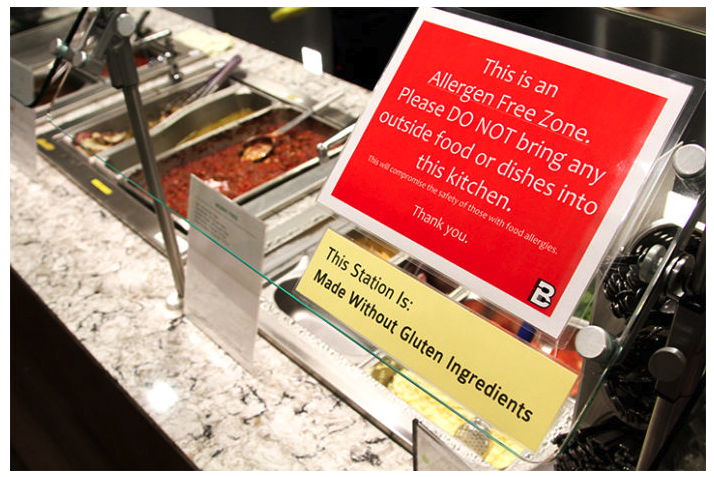
Many schools will assign you a point of contact in one or the other office, or both, and you should make use of that personal connection whenever you have any issues with your meal plan or any dining options. Ask for an escort to take you to the safe gluten free dining area and give you a tour of available options so you are totally clear on what is available.
This will not only make you more confident, but it will give them a chance to better learn your needs and make modifications to the menu, if needed. This service and accommodation is owed to you, and you should not be shy about using it.
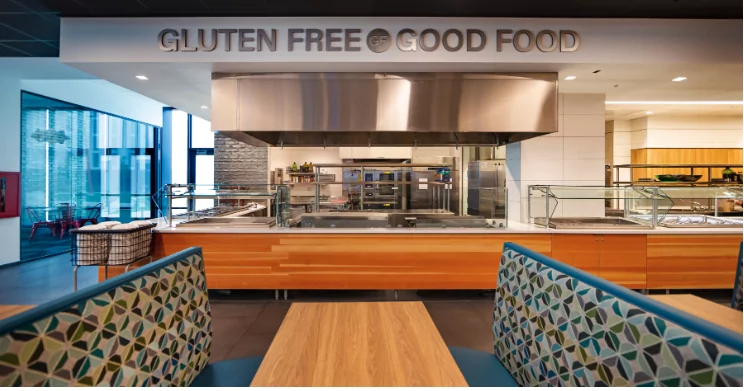
Why Colleges Must Provide Accommodation for Celiac Students
Colleges and universities have had to step up since the 2012 Lesley University-Department of Justice (DOJ) settlement which established that students with food-related “disabilities” like celiac disease and food allergies are entitled to “reasonable accommodations” at their colleges. A subsequent 2019 DOJ settlement with Rider University cemented the position, and institutes of higher education have largely fallen in line since then.
What each school’s idea of accommodation looks like tends to be a bit different at each campus, however, and not all are doing a good job yet. Which does not mean that you, as a student, don’t still deserve the same level of reasonable accommodation, no matter what institution you are attending. So be aware of your rights and if you feel you are not being provided for, exercise your rights and don’t be afraid to advocate for yourself.
To understand why you’re entitled to assistance it’s important to familiarize yourself with The Americans with Disabilities Act (ADA), Title III. It prohibits discrimination on the basis of disability in the activities of places of public accommodations.
Disabilities are defined as mental or physical impairments which substantially limit major life activities — like eating — and major bodily functions including the gastrointestinal, immune and neurological systems. Food allergies and celiac disease have been found to qualify as “disabilities” under the ADA (42 U.S.C. § 12102).
Title III prohibits any public accommodations including undergraduate or postgraduate universities from discriminating against any individual on the basis of disability in the full and equal enjoyment of their goods, services, facilities, privileges, advantages, or accommodations.
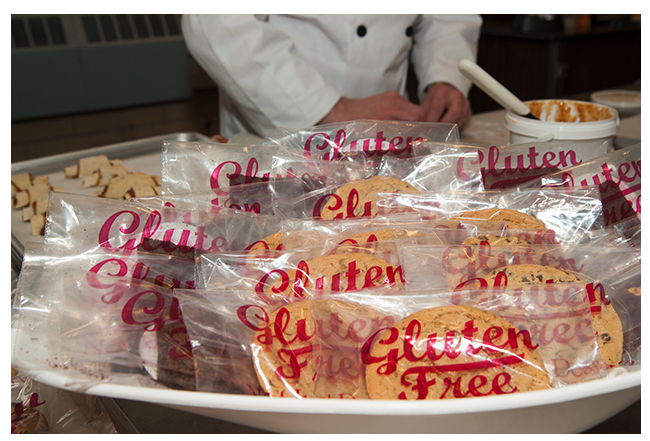
If your college requires you to buy a meal plan on campus, then they may also be required to provide you with gluten-free and/or allergen-free foods in the dining hall. If this can’t be done safely, then they may instead be required to allow you to pre-order allergen-free meals and may have to offer a dedicated space to store and prepare gluten-free and allergen-free foods.
Training of staff, displaying allergen notices, sourcing allergen-free vendors and other requirements are also part of the obligations of colleges and universities to serve their students with “disabilities” under the ADA.
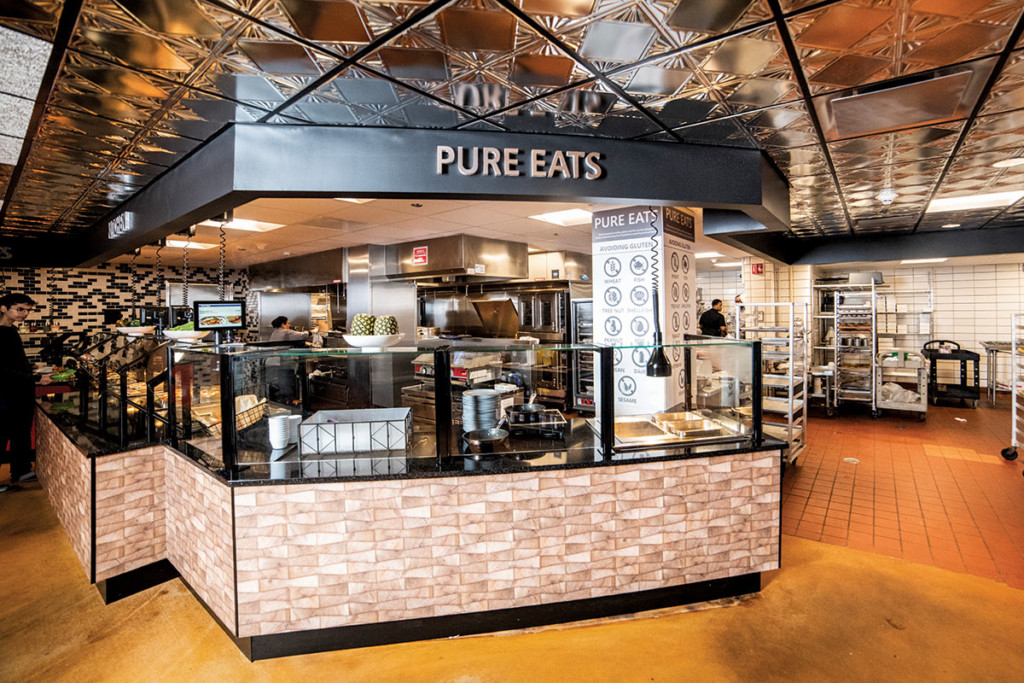
There are many more universities offering safe gluten free dining options each year — as they should be — so be sure to investigate either before choosing your school or before returning to campus each year. Other food allergens are also being accounted for.
Filing Complaints under the ADA
The Department of Justice maintains an ADA Technical Assistance Program to answer any questions you may have about how the law applies to you. To speak to an ADA Specialist, call the ADA Information Line [800-514-0301 (Voice) and 800-514-0383 (TTY)]. The ADA Website also provides further information about ADA regulations and technical assistance documents.
To file a complaint under the ADA, go to the DOJ’s site for downloadable forms and instructions.
Gluten Free Options in Dorms
All dorms are different, of course, but you should be able to make your dorm room more gluten free friendly, within reason.
Some dorms will allow you to bring in small appliances which makes lighter meals and snacking much easier, and limits cross-contact since you can keep your own appliances your own. Small is key here, as dorms rooms are not known for their size, so look to mini-refrigerators, small microwaves and small toaster ovens or air fryers as options. Units which do double-duty are even better!
One of the most useful dorm appliances is a mini refrigerator. This Bangson unit comes with a small freezer as well, which is great for storing a few frozen gluten free items — highly recommended! It can even double as a side table, which is useful in a small dorm space. It has 3.2 cubic feet of internal capacity and can store store both frozen items and refrigerated drinks, fresh vegetables, and more on the tempered glass shelves and in the crisper drawer. The doors are also reversible, so it will work in all kinds of spaces. ($169 on Amazon)
Another perfect dorm room appliance is this super compact, super cute mini toaster oven from BuyDeem. Its retro design and fashionable color options make it cool and functional, weighing in at only 12 pounds, but packing 1600 watts of power. The best part? It’s an ultra efficient toaster oven that comes to temperature instantly — no warm up waiting period — and not only toasts, but bakes, roasts and even broils (the interior is large enough to cook an 8-inch pizza). Comes with a stainless steel oven rack and baking tray, making it a single unit that does many duties. Gluten-free cookies, anyone? ($242 on Amazon*)
A mini kettle is another must-have for any dorm room, and not just for those who love tea, cocoa or coffee. Gluten free oatmeal and other hot meals like ZenB Agile Bowl Gluten Free/Vegan Protein Pasta Bowls are made so easy with boiling water at the ready! This mini beverage kettle from BuyDeem is again, so cute!, but also so safe and so compact. Very easy to operate with one-touch temperature control and keep-warm functions, it can boil up to 2.5 cups — the perfect size for one or two! German Schott Duran glass, food-grade 18/10 stainless steel, and anti-dry protection ensures the kettle shuts off when the reservoir is empty. ($99 on Amazon)
A mini waffle iron is another small footprint appliance which can make a huge difference for any gluten free college dorm. This cute, inexpensive model from Dash comes in a host of fun colors, boasts dual non-stick surfaces for easy cleanup and heats up in mere minutes. My award-winning gfJules Gluten Free Pancake and Waffle Mix is an easy one-bowl and fork mix that’s great to keep on hand and can be made with just applesauce (or eggs), oil and milk. You can even make GF cornbread in a waffle maker for a handy gluten free bread option! gfJules Gluten Free Cornbread Mix is also a one bowl and a fork mix! ($10.99 on Amazon)
To mix up your one-bowl batters, this set of 5 food-grade, stainless steel, flat-bottom mixing bowls is just the thing. Stackable, so they take up the least amount of space, and they come with airtight lids so they double as food storage in your fridge! The set is completed by a measuring cups, measuring spoons, stainless steel whisk, and a silicone spatula. ($33.99 on Amazon)
If you do have access to a dorm kitchen or when you move off campus to an apartment and you’re ready for a few more recipes, check out the Student’s Gluten Free Cookbook for Dummies by Nancy McEachern (*I was the technical editor). It offers plenty of recipes, yes, but also tips for managing social situations, prepping a shared space for gluten free cooking, gluten free shopping and more.
Please also take this opportunity to download my 35-page Back to School e-book. It contains much more information, my Top 10 Gluten Free College Tips, and a few fun recipes for gluten-free breakfasts, lunches and party food.
For more comprehensive information about celiac disease, living gluten free, dating gluten free, gluten free in college and more lifestyle applications, definitely grab a copy of my book, The First Year: Celiac Disease and Living Gluten Free.
Common Sense Gluten Free Tips
Regardless of whether you’re dining on campus or not, use common sense. If it’s not a dedicated gluten free restaurant or dining area, steer clear of salad bars with gluten-containing croutons, don’t use unlabeled salad dressings, and avoid flavored nuts and other toppings. Breakfast bars are another notorious danger zone. Even normally gluten free foods like scrambled eggs often contain pancake batter when served on a bar, so always ask ingredients of every dish.
Never use a cross-contaminated toaster. Use your own toaster or toaster oven or keep re-usable toaster bags with you.

Squeeze bottles for condiments avoid the risk of double-dipping!
Carry your favorite protein bars and shelf-stable snacks or fruit with you at all times so you never go hungry! When looking for a restaurant away from campus, I highly recommend the GlutenDude app. It’s a searchable app of dedicated gluten free or personally vetted restaurants where celiacs can feel safe. As a backup search option, use FindMeGlutenFree app.
For more tips and a full listing of what’s gluten free and what’s not, hop to my Going Gluten Free in 7 Steps article!
Will Being Gluten Free Affect Me in College?
While following a strict gluten free diet can be emotionally and mentally trying at times, it is far better than the alternative. Being a college student will require your full attention, and you can’t afford to be sidelined by intentional or accidental gluten ingestion.
Depending on your personal symptoms, you could suffer from gastrointestinal distress, skin issues, headaches, and almost certainly fatigue, and reduced cognition (brain fog), all of which can certainly affect any student’s academic performance.

Co-Factor Enhanced Food Allergy
In addition, you should be aware that “co-factor enhanced food allergy” is a term used to describe a situation where a food-allergic reaction is worse or only occurs if there is an additional factor present.
While celiac disease is not a food allergy, if you have a wheat allergy or other food allergy, you need to know that if you drink alcohol and eat that food intentionally or by cross-contact, you are risking a more intense allergic reaction. The three most common co-factors which enhance food allergies are: exercise, non-steroidal anti-inflammatory drugs (NSAIDs like ibuprofen/Advil and aspirin), and alcohol. Infection and dehydration are other common cofactors.
It’s theorized that these co-factors may increase intestinal permeability and therefore absorption of food proteins from the gut into the bloodstream, which may lead to an allergic reaction that would otherwise not have occurred or would not have been as severe. In fact, cofactors are reported in approximately 14%–30% of anaphylactic reactions.
Don’t risk it! Eat before you go or pack your own safe snacks — always carry protein bars in your backpack, for example, so you never go hungry. If you have food allergies, be extra vigilant at parties and in social settings in college where food and alcohol are involved, and let your friends know of the severity of the situation. True friends will help you stay safe.
And speaking of friends, when you meet with disability and dining services early on, not only will you locate a ready, safe food source, you might even find a group of gluten-free students since you’ll all be congregating in the same food areas. Having a supportive group of like-minded and like-eating friends is always a bonus, particularly in a new environment like a college campus.
For a great virtual experience, connect with others through Baltimore Gluten Free’s Gluten Free College 101 on-line group. Resources, information and of course, others just like you going through the gluten free college experience. It’s a wonderful resource, no matter where you are in school.
Also be aware that accessing your college or university’s mental health services is something many students do throughout their time on campus; there’s no shame in it, and it can be especially beneficial when navigating the emotional challenges of being a new college student with celiac disease or other dietary restrictions to manage. RAs (resident advisors) and other campus peer advisors can also be super supportive to help get through the inevitable rough patches.
Pin this post to save for later and share with friends!
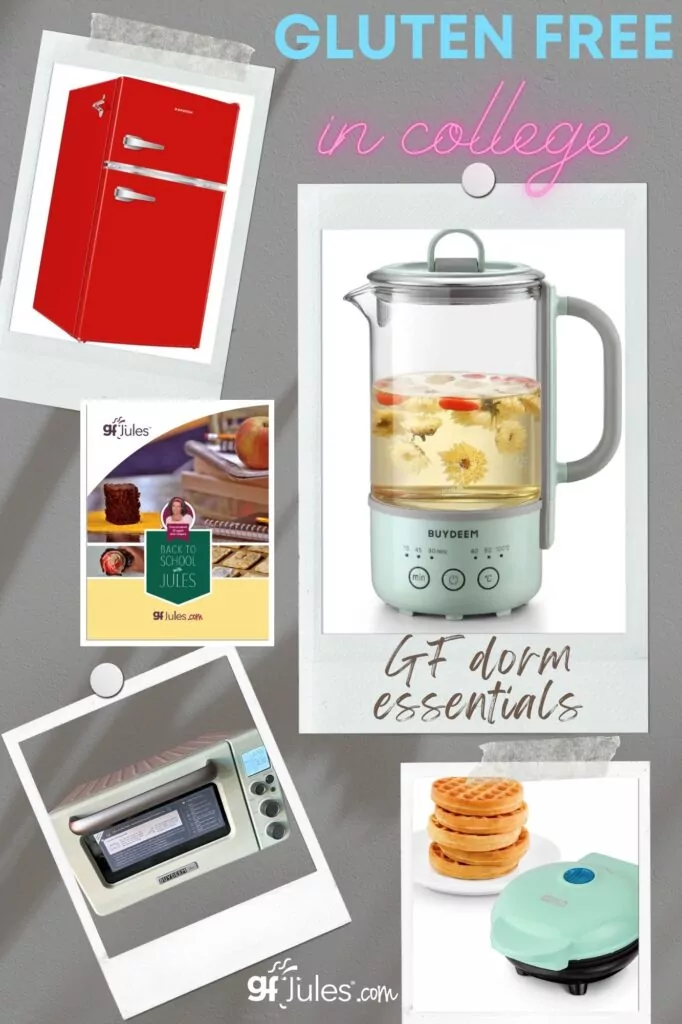
*In some cases, sponsors have provided free product. Some links to products may be affiliate links. As always, all opinions are my own. See my disclosure policy for more information. Working with select brands I love allows me to keep bringing you free recipes and great contests! I hope that in the process, you’ll learn about some of the safe gluten free products I choose for my family. Thanks so much for your support!


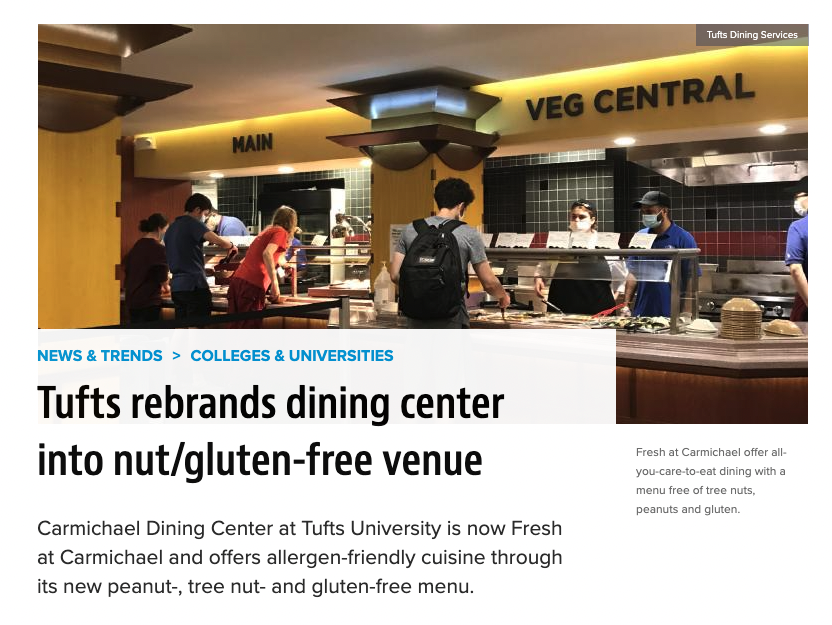
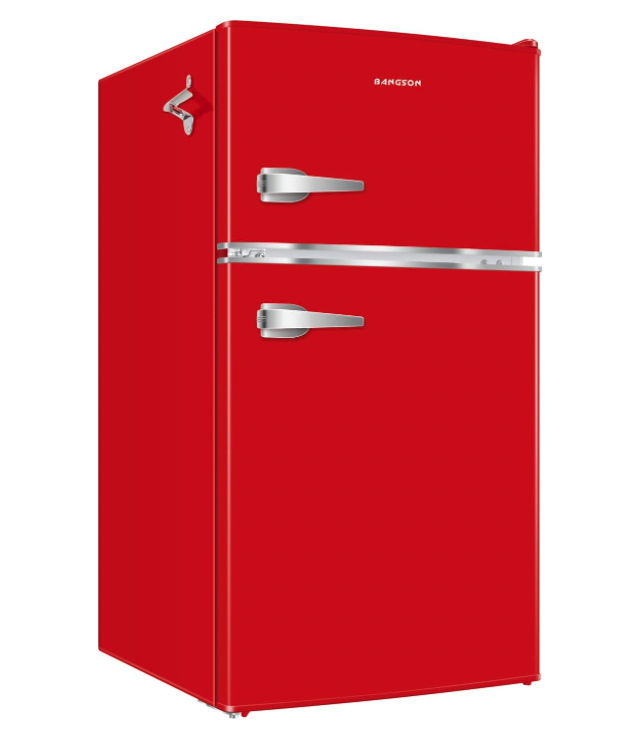
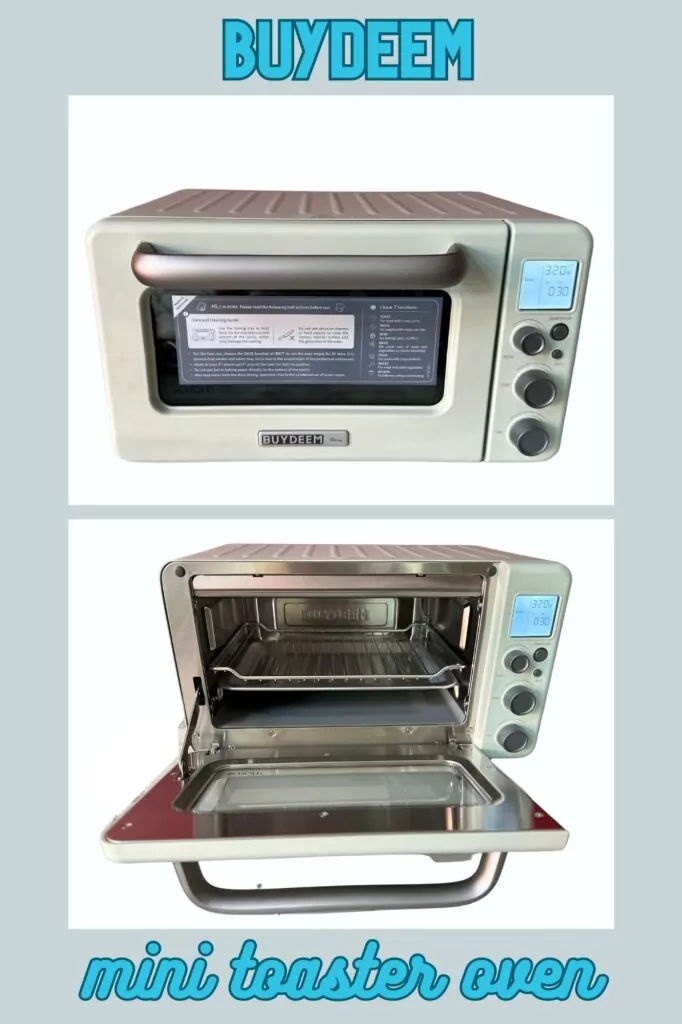
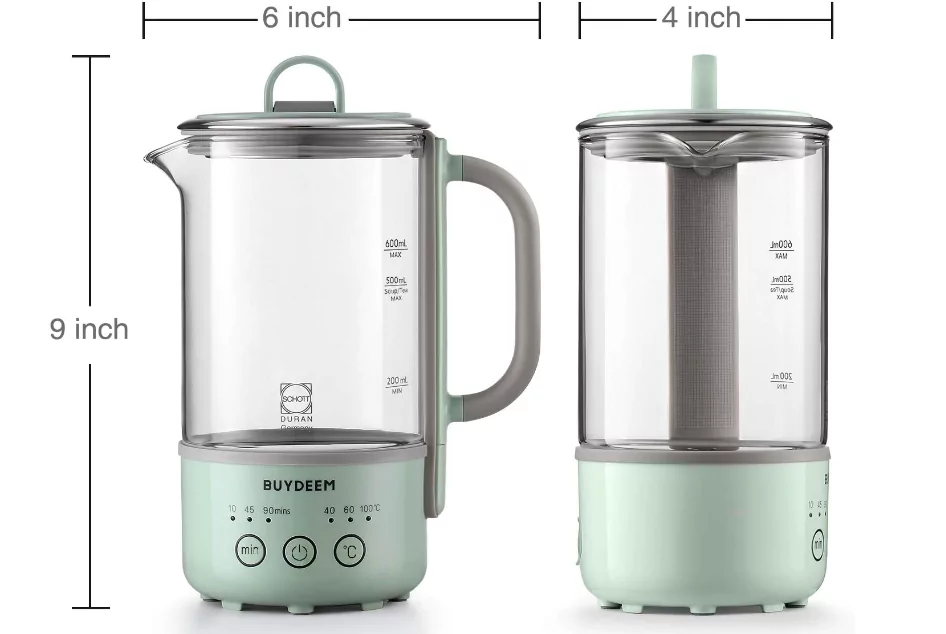
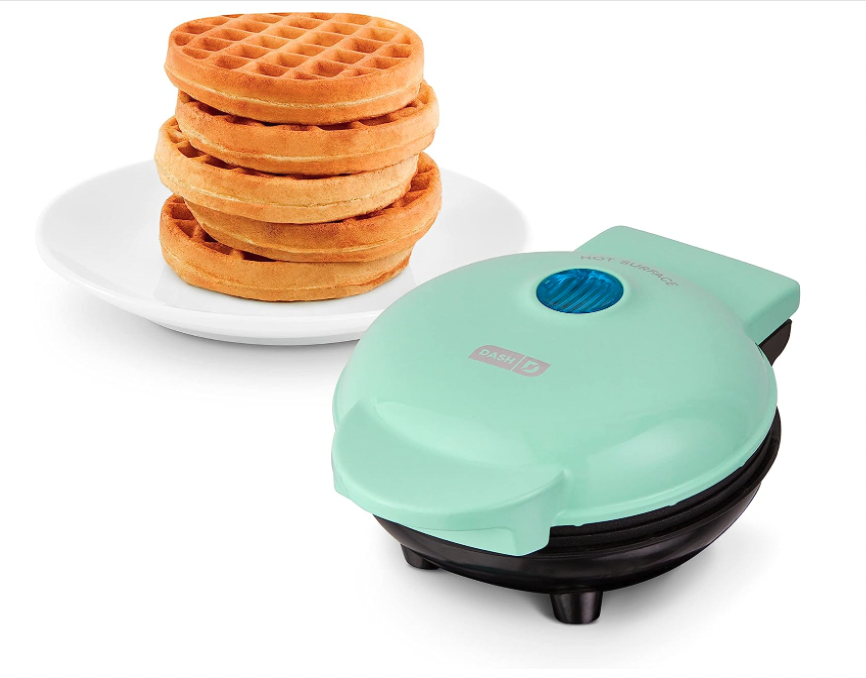
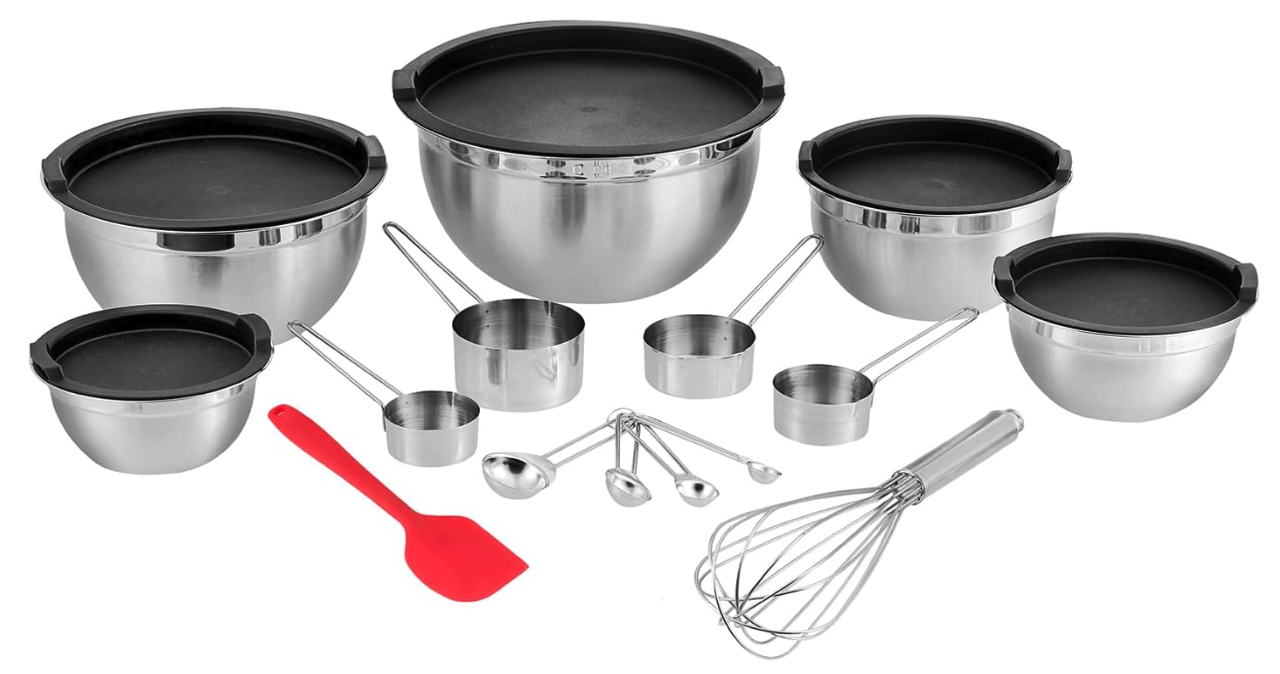


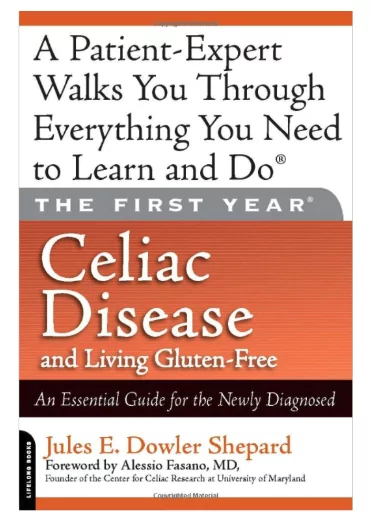







 (1 votes, average: 4.00 out of 5)
(1 votes, average: 4.00 out of 5)











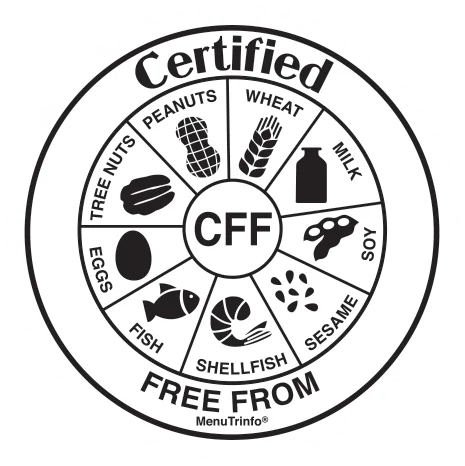




Lots of helpful information at an exciting time in life where there are so many changes – thanks!
My daughter just finished her Freshman year. There were challenges with the food service in the dorms, but she knew how to advocate for herself and we did get her a refrigerator with a freezer and a microwave. But her favorite appliance turned out to be the mini waffle maker.
So glad your daughter was able to advocate for herself and get what she needed: a skill learned early that will serve her well throughout her life! That mini waffle maker is such a handy and fun appliance for dorms!
~jules